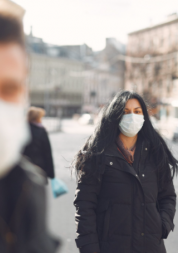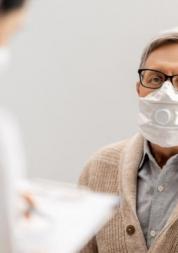Experiences of Long Covid

Many people who had been ill with Covid-19 have been experiencing long-term effects and symptoms that have affected many aspects of their life. This is called Long Covid or Post-Covid Syndrome. We wanted to understand what support is needed for people living with this condition or the long-term effects of another virus to inform decision makers about what people are experiencing and what further help may need to be put in place.
What we did
We launched an online survey to find out from people about their experiences with signs and symptoms lasting more than 12 weeks after an infection from a virus. Questions included in the survey covered topics such as the length, type, and strength of symptoms, as well as how they changed over time, how the symptoms affected people’s day-to-day life, as well as their mental health and wellbeing. We also asked respondents about the process of getting diagnosed and the support that was provided to them. The survey was open from 22nd of July 2021 to 15th September 2021 and 50 people shared their views with us.
Key findings and recommendations
In summary we found a need for the following:
- Increased knowledge and awareness of long-term symptoms after COVID-19, amongst patients and health and care staff, as well as carers and the wider community.
- Development to support should include peer support, more support for managing symptoms and more treatment options.
- Provision of support/referrals should be available if COVID-19 status is not confirmed but based on the symptoms that need support. This may also reduce delays in access to support.
- The uncertainty about how long the symptoms will last and fluctuations in severity, as well as the negative impact of symptoms on a wide range of daily activities and mental health, suggests a need for more holistic support. Nearly three quarters of people said there had been an impact on their emotional wellbeing or mental health.
“I have struggled with anxiety in the past anyway and I have found the uncertainty of living with long covid has added to that challenge. The fluctuation of my symptoms has also made me feel more ‘up and down’ than normal and I think that, combined with the frustration of it lasting so long, has made me suffer with low mood more than before. I do my best to focus on my wellbeing and things that make me feel positive, but it can be harder on the days when I don’t feel so well.”
“I’ve been experiencing this for 11 months now and it still impacts my everyday life, so I would really appreciate some advice or support from a medical professional to determine if there’s anything that can be done to help (even if it’s just stuff I can do myself), or if not, at least a clearer sense of what to expect and an understanding of my symptoms. I know this is a new disease and everyone is finding their way - but I am a solution-focused person and that would really help me feel less alone in dealing with it! “
What happens next
This information will be used to inform local health and care services and decision makers about what people are experiencing and recommend how they can design services and support to better meet people’s needs.
See our updates on what has happened next:
Support for Long Covid currently available in Wandsworth:
One of the main findings from our survey was that there seem to be a general lack of knowledge of Long Covid and the support currently available, so we wanted to collate a few resources that hopefully you will find helpful (clicking on the items will take you to the relevant webpages).
- What is Long Covid (NHS)
- South West London Long Covid support information
- Long Covid Support
- Long Covid support for Kids
- Information about COVID recovery and more here.
One of our key findings was that managing Long Covid symptoms has also had a strong negative effect on emotional wellbeing and mental health. You can contact Talk Wandsworth if you or someone that you know are experiencing mental health issues.
Download our full report
Read our full report to hear more about people's experiences and what it has really been like trying to live with and manage the effects and symptoms after a virus like COVID-19.

